Top-Rated Debt Collection Agency in North Carolina
Efficient and Trustworthy Debt Collection in North Carolina - no initial fees, pay only after successful collection. Schedule your FREE Consultation or submit your claim today.

Unlocking Successful Debt Recovery with Debitura in North Carolina: Your Top Choice for Efficient Collections
Unlock your successful debt recovery with Debitura, the top-notch Debt Collection Agency in North Carolina. We specialize in everything from accounts receivable management to enforcement court proceedings, navigating you through complex North Carolina regulations with efficiency and expertise. You've done the work—you deserve to be paid. Let us handle your outstanding debts, allowing you to focus on what's important: your business.

Comprehensive debt recovery solutions in North Carolina from A-Z.

Data-driven, personalized debt recovery in North Carolina.

Harnessing +500 global debt collection experts for optimal results.

Achieving 87% debt recovery success in North Carolina.
Key facts
- Debt Collection Laws: North Carolina's debt collection is regulated by federal and state laws, specifically Chapters 58 and 75 of the North Carolina General Statutes.
- Statute of Limitations: North Carolina has a three-year statute of limitations for written contracts and open accounts.
- Interest Rates: North Carolina law sets the maximum interest rate at 8 percent, but higher rates can be contracted.
- Late Payment Fees: In North Carolina, the maximum late fee is $15 or 5%, whichever is greater.
- Wage Garnishment: Wage garnishment is generally not allowed in North Carolina, except for child support delinquency cases.
- Small Claims Limit: The small claims limit in North Carolina varies by county, ranging from $5,000 to $10,000.
- Exemptions for Attorneys: Attorneys handling debt collection for their clients are exempt from North Carolina collection statutes.
- Permit Requirement: Collection agencies and debt buyers must obtain a permit before operating a collection agency in North Carolina.
- Remedies for Returned Checks: North Carolina law allows for civil remedies for returned checks, including recovery of the amount owed, service charges, and processing fees.
- Court Costs: Court costs in North Carolina vary depending on the type of filing, with fees ranging from $150 to $200.
This guide is not legal advice and laws/rules may change; consult a qualified professional for personalized assistance. Use at your own risk.
Introduction to Debt Collection In North Carolina
Debt collection, a common financial occurrence, involves reclaiming debts owed by individuals or businesses, often referred to as debtors. These debts accrue when an individual or entity defaults or stops paying on a loan or other financial obligation. The rising incidence of debt has necessitated the rise of third-party agencies specialized in reclaiming these unpaid amounts.
In the context of debt collection, three key actors are part of the process: the debtor, the creditor, and the collection agency. The debtor is the individual or business that owes money. The creditor, on the other hand, can be any organization or individual to whom the debt is owed. Typically, the creditor might be a bank, credit card company, service provider, or other financial institution who provided the original financial product or service. A collection agency is a third-party company engaged by the creditor to recover unpaid debts from the debtor.
In North Carolina, like in other states, the debt collection process is typically broken down into three main stages: pre-legal, legal, and debt enforcement. The pre-legal stage is the first step in the debt collection process in which the creditor attempts to collect the debt directly from the debtor through reminders, calls, and letters. If these efforts don't yield results, the creditor may choose to escalate the matter to the legal stage, where formal legal action may be attempted to recover the debtor's unpaid amounts. If the court judgment goes in favor of the creditor, the debt enforcement stage is then initiated where the judgment debt is enforced and the debtor is required to pay.
Understanding Debt Collection in North Carolina
In North Carolina, debt collection practices are guided by both North Carolina state law and the federal Fair Debt Collection Practices Act (FDCPA). These laws serve to protect debtors from abusive, deceptive, or unfair debt collection practices by the collection agencies or creditors. It is crucial for debtors to be aware of their rights and for collection agencies to adhere to the outlined laws and practices to maintain the legality of the debt collection process.
It is also important to note that timing plays a crucial role in the collection of debts. The state's statute of limitations sets out the timeframe within which a creditor or collection agency may take legal action to collect a debt. Once this period has lapsed, the debt is considered "time-barred," and the debtor is no longer legally obligated to repay it.
Ultimately, understanding the debt collection process and knowing one's rights and obligations under North Carolina's laws can empower individuals and businesses to navigate the debt collection process more effectively. A well-informed debtor stands a better chance at properly handling their financial responsibilities, thus avoiding unnecessary legal troubles and disruptions to their financial stability.
Debt Collection Laws in North Carolina
When it comes to debt collection, the laws can often feel like a confusing web of regulations. To simplify matters, it's essential to focus first on the federal collection laws. The Fair Debt Collection Practices Act (FDCPA), the Fair Credit Reporting Act (FCRA), and the Telephone Consumer Protection Act are among these key federal laws that govern how collection agencies can impact credit ratings and interact with debtors.
The FDCPA lays down stringent regulations on when and how a debt collector can contact a consumer, along with stipulating the guidelines on furnishing information and handling disputes. The Act also prohibits deceptive, unfair, or abusive practices by debt collectors. The FCRA controls how consumers' credit data is gathered, stored, and shared. It also provides consumers with the right to validate and dispute information on their credit reports. The Telephone Consumer Protection Act, on the other hand, provides rules on calls and texts sent to debtors.
Regulation and oversight of these processes are managed by two key federal bodies - the Consumer Financial Protection Bureau (CFPB), and the Federal Trade Commission (FTC). These agencies ensure that the debt collection processes are carried out in a manner that is fair and transparent, with the aim of protecting consumers from unscrupulous practices.
North Carolina's State Laws on Debt Collection
Moving from federal to state jurisdiction, North Carolina has specific regulations concerning debt collection. These are outlined in Chapters 58 and 75 of the North Carolina General Statutes, namely, the North Carolina Collection Agency Act and the North Carolina Debt Collection Act respectively. These laws bring local-level control to how debt collection practices are regulated, how debt collectors are required to operate, and the prohibition of abusive conduct, while also providing remedies for consumers who've suffered harm.
The North Carolina Debt Collection Statutes, part of Chapter 75, primarily address areas of monopolies, trusts, and consumer protection. It makes unfair or deceptive acts during debt collection illegal and governs the overall conduct of debt collection operations. Chapter 58, the North Carolina Collection Agency Act, provides specific regulations on collection agencies, covering acts deemed unfair or deceptive, and outlines the legal liabilities a violating agency can face.
Both Chapters’ interpretation of a 'consumer' varies, as does their applicability. Both collection agencies and creditors aiming to collect debt from individual consumers come under the North Carolina Debt Collection Act. Attorneys handling debt collection for their clients enjoy certain exemptions from these state collection laws.
Significant Provisions in North Carolina State Laws
Both North Carolina Collection Agency Act and the Debt Collection Act prohibit abusive collection conduct and allow for civil liability. Violations of these acts can result in a plaintiff being awarded actual damages, statutory damages ranging from $500 to $4,000 per violation, and reasonable attorney's fee. Emotional distress damages, under the law, can constitute actual injury.
One crucial requirement of the North Carolina Collection Agency Act is that collection agencies must secure a permit before conducting any form of collection activity. Furthermore, these agencies must provide proper identification in all correspondence and issue a receipt for any payments received. This Act does not cover law firms handling collections, but they do come under the purview of the Debt Collection Act.
The statutes of limitation in North Carolina are also vital. There’s a three-year limit on written contracts and open accounts, with a four-year limit for contracts for the sale of goods backed by a security agreement. North Carolina law also provides civil remedies for returned checks and restricts the garnishment of wages, except in child support delinquency cases.
In conclusion, the landscape of debt collection laws in North Carolina is a complex interplay of federal and state regulations, governed by the core aim of protecting consumers while ensuring that debts are collected effectively. The statutes discussed above act as protective shields for consumers against potential collection agency exploitation, and it’s crucial for individuals and businesses alike to understand these laws to ensure a fair debt collection process.
Risk Free Debt Collection
Upload your claim and get started with our 100% no-cure-no-pay collection solution.
The Debt Collection Process In North Carolina
The debt collection process in North Carolina is governed by a blend of state and federal laws which set out solutions for recovering unpaid financial obligations. The process typically unfolds in several definitive stages.
Evaluating the case
An essential initial step in the North Carolina debt collection process is evaluating the case. During this phase, the debt's validity is examined and considerations, such as time elapsed since the last payment, are scrutinized. This precaution is taken since North Carolina has a three-year statute of limitations on written contracts and open accounts, after which debt can no longer be forcibly collected.
It also factors in the type of debt and related information like the original contract terms and relevant interest rates. Although North Carolina law sets the maximum interest rate at 8 percent, the rate can be higher if such was agreed upon when the contract was made.
The case assessment establishes a road map for subsequent procedures. Legal counsel may be involved at this stage if the creditor wishes to hire an attorney, who are specifically exempted from North Carolina's collection statutes, to handle the case.
Pre-legal or amicable phase
The next step taken is often the pre-legal or amicable phase. This part of the NC debt collection process typically involves reaching out to the debtor via various channels like letters, phone calls or emails, in an effort to find an amicable payment resolution without having to resort to legal action.
During this phase, the debtor is likely to be informed about the amount owed and the potential for additional charges like late payment fees, for which the maximum in North Carolina is $15 or 5%, whichever is greater. The debtor is also likely to be presented with various payment options and strategies, such as a payment plan or even a discounted lump sum settlement.
If successful, this phase resolves the debt without court involvement. However, if it fails to yield payment or satisfactory payment arrangements, the process moves to the next stage.
Evaluation of the case and legal considerations
If the pre-legal stage does not yield results, a further assessment is conducted to determine if the case is fit for small claims court proceedings. The debt amount, nature of the default, and local regulations are among factors reviewed at this stage. This is because small claims court limits in North Carolina vary by county, being anywhere between $5,000 and $10,000.
If determined the case is fit for small claims court, it progresses there. Otherwise, a more involved legal process is typically undertaken, usually involving a debt collection attorney.
Legal debt collection steps
When the debt collection process enters the legal phase in North Carolina, the creditor may bring a lawsuit against the debtor. Filing fees for such legal suits range from $150 - $200. If the court rules in favor of the creditor, a judgement is issued which permits various debt enforcement mechanisms.
North Carolina is a debtor-friendly state, and the options available for enforcement of judgement are generally far fewer than in other states, with wage garnishment typically prohibited except in child support delinquency cases. Remedies available may include property liens, levies, or attachment orders.
In conclusion, the debt collection process in North Carolina is complex and multifaceted, requiring thorough knowledge of state and federal laws regarding interest rates, statutes of limitations, and permissible collection tactics. Engaging in this process can be daunting, and often the services of a skilled professional are valuable in ensuring economic justice.
Statute of Limitations in North Carolina
Statutes of limitation signify the legally fixed period within which an action must be taken for recovering debts. These statutes vary by state and the type of debt. The importance of understanding statutes of limitation in debt collection is extremely crucial. It determines the amount of time a creditor has to obtain legal judgment and initiate the collection. Significantly, after the statute of limitations expires, a creditor or collection agency is no longer able to win a lawsuit or judgment to collect the debt without the debtor's agreement to prolong it.
Debtors should understand the relevancy of these statutes in any debt collection process. If you are contacted for a debt that is beyond the statutory period, you can use the statute of limitations as a legal defense against a lawsuit. However, in many states, if you make a payment or acknowledge the debt in writing, it can reset the clock on the statute of limitations. Therefore, knowing this information prior to engaging with any form of collection attempts is beneficial.
In North Carolina, the statutes of limitations are regulated by N.C. Gen. Stat. § 1-46 et seq. This regulation plays a significant role in determining the period during which legal actions can be brought against debtors, based on the type of contract under which debt was incurred.
Timeline for Different Types of Debts
The specific timeline for statutes of limitations in North Carolina varies based on the nature of debt. For both written and oral contracts, the statute of limitations is three years. A written contract refers to any agreement that is documented and signed by the party to whom the debt is owed. An oral contract is an agreement where the terms were agreed upon by spoken communication. Although proving the validity of oral contracts can be more challenging, they are definitely enforceable under this statute.
Moreover, the statute of limitations for injury cases in North Carolina is also three years. In these instances, injury refers to any damage or harm caused to the person or character of another, and the time period is calculated from the time when this injury happened or was discovered.
For property damage, the statute of limitations is three years as well. This refers to any harm that results in loss or decrease in value of your property. Similar to personal injury cases, the time period for property damage begins once the damage is realized or should have been discovered.
Consequently, understanding the nuances of these statutes is invaluable. It is essential always to know your rights and normal procedures within your state when dealing with any type of debt collection. Understanding the statute of limitation in North Carolina can prove a useful tool when managing debts effectively.
Interest Rates on Late Payments in North Carolina
Understanding the impact of interest rates on debt collection is crucial for both creditors and debtors in the debt collection process. The interest rate on late payments levied by the creditor can significantly balloon a debt, making it difficult for the debtor to repay the debt in full.
In North Carolina, the state law has provisions in place to cap the rate of interest that can be charged. These laws are essential to balancing the interests of both the creditor and the debtor, preventing the debt from becoming unmanageable while still allowing the creditor to earn from the extended credit.
Now, let's delve a bit deeper into the specifics of the North Carolina laws in relation to interest rates on late payments.
The Legalities of Interest Rates in North Carolina
While most states have laws in place limiting the interest a creditor can charge, traditionally referred to as "usury" laws, consumers in North Carolina are permitted to waive these protections by agreeing to higher rates. The maximum interest rate set by North Carolina law is 8%. However, consumers and creditors are allowed to contract for a higher rate, provided that it is explicitly stated and agreed to by the two parties.
This statutory limit of 8% does not apply to certain financial transactions. For instance, it does not cover mortgage loans, equity lines of credit, and some other types of credit.
Further, if a creditor charges an unlawful interest rate, known as usury, the penalty includes forfeiture of all interest charged. The party who paid the usurious rate may also recover twice the interest paid.
Interest Rates on Judgments
In the event that a debt goes to court and results in a judgment, the interest rate remains the same as the legal maximum rate or the originally contracted rate. Hence, the rate could be 8%^ or whatever rate was agreed upon in the initial contract between the creditor and the debtor.
Special exceptions apply to some types of financial transactions such as home loans secured by mortgage, equity lines of credit, loans to corporations, and business done by savings and loan associations. Such transactions do not fall under the same umbrella of interest rate laws.
The best way to avoid crushing debt through high interest rates is by avoiding credit card debt or any debt at all. Be wary of high interest rates on credit card offers, and always strive to clear your credit card balance as promptly as possible. For those who find themselves under credit card debt, there are consumer protections provided under both state and federal laws.
Late Payment Fees in North Carolina
Late payment fees play a crucial role in the realm of debt collection. As their name suggests, these charges are applied to outstanding debts where the debtor has missed a payment deadline. They act as a deterrent for late payments and serve as a form of compensation for a creditor who experiences delays in receiving owed money. Acknowledging the importance of understanding these fees, within the state of North Carolina, there are specific regulations in place that govern their incurring and collection.
In this state, the maximum cap for late payment fees is either $15 or 5%, whichever of these amounts is higher. It is important to take note of this information as it helps in calculating possible late payment charges and managing business finances more effectively. Furthermore, it offers guidelines on the acceptable amounts to avoid unfair practices when dealing with customers or clients who may fall behind on their payments.
While state law does not mandate it, businesses have the liberty to provide a grace period before applying these late fees. This practice often serves the dual purpose of allowing debtors a reasonable timeframe to make their payments and demonstrating goodwill on the part of the creditor. A suggested best practice is the provision of a seven-day grace period before these fees are levied. However, this practice remains at the discretion of individual businesses.
The Impact of Late Payment Fees
Just as there are clear regulations regarding late payment fees, it's equally important to understand the broader impact they have on business transactions and relations. First, given the compulsory charges associated with overdue payments, they act as a significant incentive for businesses and individuals to settle their debts promptly. This promotes healthier cash flow and business stability for creditors.
Secondly, businesses must manage late payment fees effectively and ethically, ensuring they abide by state laws. Failure to adhere to the established regulations could result in legal repercussions, including fines and reputational damage. Therefore, to avoid legal consequences, businesses should ensure they are fully conversant with the rules governing late payment fees within North Carolina.
Lastly, the manner in which a business manages late payment fees can affect its relationship with clients or customers. Transparent, fair, and patient application of late payment fees, including providing a grace period where possible, helps maintain positive client relations while also protecting the financial interests of the business.
Small Claims Procedures in North Carolina
Using small claims procedures can be an efficient and cost-effective method to recover debt. In North Carolina, a part of the magistrate court, known as Small Claims Court, handles these cases. The purpose behind these procedures is to provide a simplified process for people to resolve minor disputes, including debts without the necessity for legal representation.
The primary laws governing this process lie within the North Carolina General Statutes sections 7A-210 to 7A-232 and 42-29. For convenience, Small Claims Court provides this court information online at www.nccourts.gov/courts/small-claims-court and the state statutes can be found at www.ncleg.gov/Laws/GeneralStatutes.
One crucial factor is the dollar limit for small claims in North Carolina, which varies by county, ranging from $5,000 to $10,000. It's proven as a practical venue for individuals and businesses to recover debts within these limits without getting entangled into protracted legal disputes. However, the case must be filed in the county in which the defendant resides, or where a corporation maintains its place of business.
Legal Representation and Court Procedures
Whereas having a lawyer is not a requirement, it's allowable in North Carolina Small Claims Court. Defendants are not required to file a response; a general denial of all claims is simply assumed if an answer is not filed. Take note that counterclaims over $10,000 are not permitted, although the failure to assert a counterclaim will not prevent a claim in a separate action.
There is no provision for transfer of cases, but a defendant can initiate a separate action in the proper court. Both parties are able to appeal the decision. Notice of appeal can be given either orally in the court or by filing a notice of appeal in the office of the clerk of superior court within ten days after entry of judgment.
Eviction cases can also be handled in the Small Claims Court. However, jury trials are not allowed. If a case is not assigned to a magistrate, it's treated like a regular civil case. A plaintiff may request a jury trial within five days of receiving a notice of non-assignment, while the defendant may make the request either before or at the same time as filing an answer.
In conclusion, the small claims procedures in North Carolina offer an accessible avenue for debt collection. With its simplified procedures, quick resolutions, and the potential for self-representation, it's a viable mechanism for recovering debts within stated monetary limits.
Wage Garnishment in North Carolina
Wage garnishment is a common method of debt collection. It is often the final resort for creditors to retrieve the amount owed to them. The process involves a court order that instructs an employer to withhold a portion of the debtor's earnings and send it directly to the creditor until the debt is fully paid.
In North Carolina, however, the state laws differ significantly from federal law. In general, wage garnishment is prohibited in the state, with a few noted exceptions. Addressing these specifics can help both debtors and creditors understand their rights and responsibilities.
Exceptions to the Wage Garnishment Law in North Carolina
The state law prohibits most types of wage garnishment but allows it in certain situations. North Carolina recognizes wage garnishment for debts related to taxes, student loans, child support, and alimony. In these cases, garnishment without a court order can take place due to federal law overruling North Carolina's statutes.
Even when wage garnishment is permissible, constraints on the amount that can be garnished exist. For instance, for child support or alimony, up to 50% to 60% of a debtor's disposable earnings can be garnished. Student loan or tax-related debts have their own specific limits.
It should be noted that North Carolina law considers wages to be the money earned only from employment. This distinction can potentially protect amounts sourced from retirement pensions, social security, or insurance claims from garnishment attempts.
Non-Wage Garnishment and Other Debt Collection Methods
Despite the broad prohibitions on wage garnishment, creditors in North Carolina can still resort to different means to settle debts. Non-wage garnishment or attachment of a bank account, for instance, is permissible. Here, a court order forces the bank to freeze the debtor's account and use the funds to pay off the debt.
Besides, creditors can also go for property seizure whereby they can claim the debtor's property, sell it and use the proceeds to clear debts. These options, however, require court approval and are generally taken as a last resort when other methods have failed.
Understanding wage garnishment laws and alternatives can play a crucial part in navigating the complexities of debt collection for creditors while offering debtors a clear picture of their rights and protections under North Carolina law. Professional advice should always be obtained when dealing with such matters, as every case has its unique set of circumstances.
.webp)
.png)
.avif)
.avif)
.avif)
.avif)
.avif)
.avif)
.avif)

.avif)

.avif)
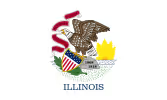
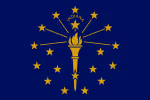

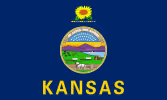

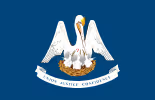
.svg.avif)



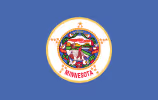
.avif)
.avif)
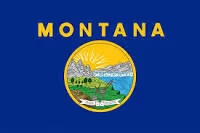
.avif)
.avif)


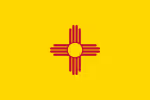
.avif)

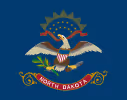
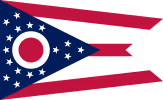
.svg.avif)
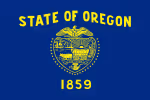
.avif)

.avif)
.avif)
.avif)
.avif)
.avif)
.avif)
.avif)
.avif)
.avif)
.avif)
.avif)
.svg%20(1).avif)
.svg)

